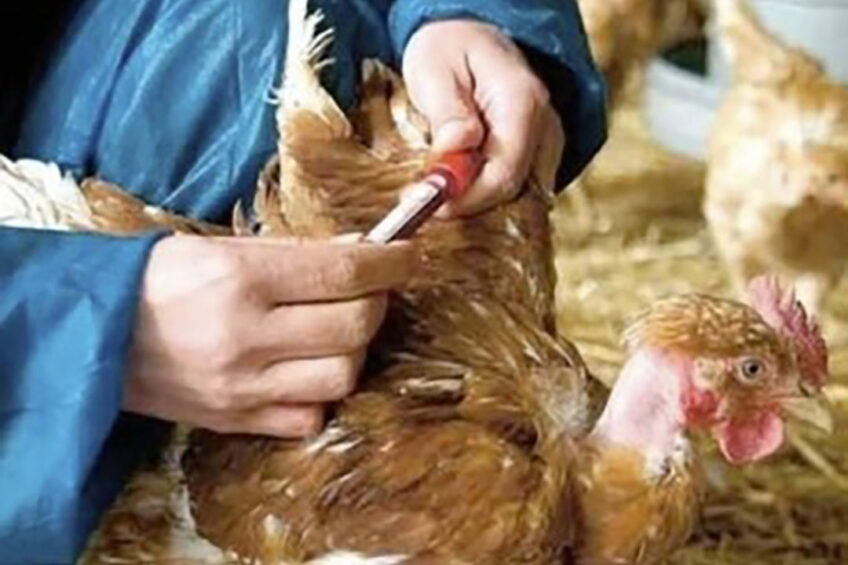Colombia declares avian influenza outbreaks in wild birds

Colombia declared a health emergency status in November following the detection of 2 avian influenza outbreaks among wild birds. The Caribbean country was the first in South America to identify the disease, just days after Mexico and Panamá confirmed the same.
Colombia has a large frontier with Venezuela, Brazil, Ecuador and Peru. Amongst these countries, Brazil is the main poultry producer and the primary exporter globally.
The Colombian Ministry of Agriculture and Rural Development and other entities try to avoid new avian influenza outbreaks among wild and domestic birds to facilitate control actions and the eradication of the disease.
With the announcement of a health emergency, they hope that the necessary sanitary measures can be taken in any part of the country, based on the existing risk, to protect the national poultry industry and neighbouring countries.
Control measures to manage avian influenza outbreak
It will also proceed to manage resources with the National Poultry Fund for emergency care, compensate producers for slaughtered birds, strengthen the biosecurity around farms, and communicate sanitary measures implemented.
Colombia has maintained its status as a country self-declared free of avian influenza since 2011. Poultry farms certified as compartments free of avian influenza in the national territory maintain the conditions that gave rise to their certification as free of this disease.
However, the Inter-American Institute for Cooperation on Agriculture (IICA) makes a special call to poultry producers to reinforce all biosecurity measures to prevent the entry of the disease to their farms and the disease spreading.
Preventive measures
The main preventive measures include the intensification of biosecurity controls, permanent supervision of wild birds, and immediate reporting to the institute of any sign of disease in birds or drop in poultry production.
As a protection and prevention measure, it is prohibited to host events in quarantined areas, to move sick birds, to sell dead birds, or to dispose of poultry manure without prior sanitisation and respective authorisation by the IICA in case this is required.
According to the IICA, any non-compliance will be sanctioned under the provisions of Law 1255 of 2008 “through which the creation of a programme that preserves the sanitary status of a free country is declared of national social interest and as a health priority” of avian influenza.
Brazil sounds all alarms
After cases of highly pathogenic avian influenza (IAAP – H5N virus) in non-commercial birds were detected in Colombia, the Ministry of Agriculture, Livestock and Supply (MAPA) issued an alert to all Brazilian producers to reinforce preventive measures in Brazil and prevent the disease from reaching the country.
“IAAP is an exotic disease in Brazil, never detected in the country, and its prevention is the responsibility of all actors involved in the production chain,” says MAPA.
For the Ministry, the moment calls for a joint effort between public agencies and the productive sector to “safeguard public health and the health of the national poultry flock and mitigate the socio-economic impacts of an eventual occurrence of the disease”.
The statement also highlights that, although the properties affected in Colombia are located far from the border with Brazil, the Department of Animal Health of the Secretariat of Agricultural Defense is actively working on surveillance of the virus.
“The work carried out aims to minimise the risk of the disease occurring in the country, considering the world situation of avian influenza and the spread of the virus, mainly by wild birds,” explains the director of the Department of Animal Health, Geraldo Moraes.
Among the actions implemented this year, the new guidelines for surveillance and notification of suspected avian influenza were revised and a new surveillance plan for avian influenza and Newcastle disease was published.
Surveillance plan
The new plan reinforces the importance of immediate notification to the state veterinary services (SVE), by any citizen, of domestic and wild birds with respiratory, nervous, or high mortality signs, essential for the rapid detection of avian influenza.
According to MAPA, notification can be made to the SVE through the e-Sisbravet virtual platform or by any other means (e-mail, telephone, or in person).
The plan also expands surveillance of commercial and subsistence birds and includes a sampling of birds located on properties that are on migratory bird routes in the country.
These collections aim, on the one hand, to demonstrate the absence of circulation of the viral agent and support the certification of Brazil as a country free of highly pathogenic avian influenza and, on the other hand, the adoption of mitigation actions and timely containment of the disease once detected.












